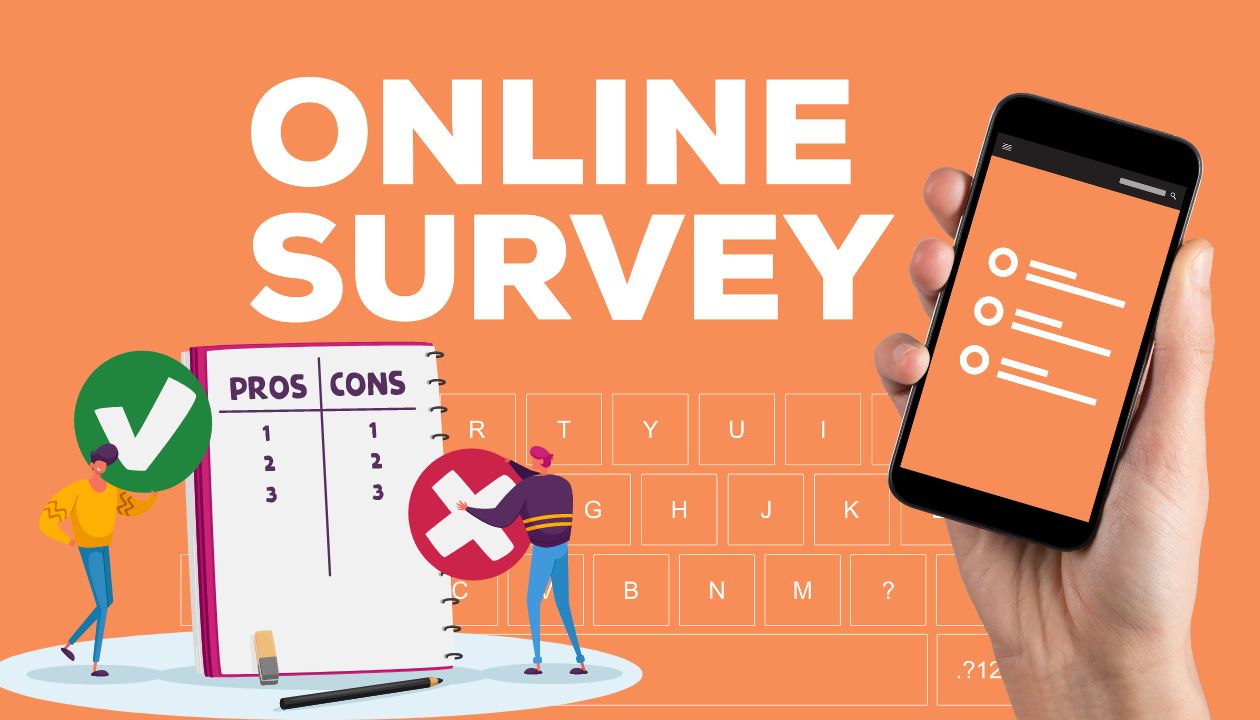The rise of online job opportunities has brought with it a surge in scams, particularly fake online surveys promising high-paying jobs or easy money. These fraudulent schemes often target individuals seeking flexible work or ways to earn extra income from home. Unfortunately, many users fall victim to these scams, resulting in loss of money, personal information, and time.
This guide will help you understand what fake online surveys for jobs look like, how to spot them, and the best practices to protect yourself from falling prey to these scams.
What Are Fake Online Surveys for Jobs?
Fake online surveys for jobs claim to offer easy and quick cash in exchange for completing simple surveys. These scams usually promise large sums of money or the opportunity to work from home on flexible terms. The process typically involves filling out a questionnaire or profile, after which the scammer asks for payment for access to more surveys or job listings.
Common Characteristics of Fake Online Surveys for Jobs
- Promises of Easy Money
- Legitimate online surveys usually pay only a small amount for your time. Fake surveys often claim you can earn hundreds of dollars per day by simply answering a few questions. This is unrealistic and a clear red flag.
- Upfront Payment Requests
- Many scams require you to pay an upfront fee to join, get access to more surveys, or gain training to “qualify” for the jobs. This is not how legitimate surveys or jobs work.
- Too Good to Be True
- Scams often use language like “Guaranteed Job!” or “Earn $500 a Day Doing Simple Surveys.” If it sounds too good to be true, it probably is.
- Unclear or Vague Job Descriptions
- The job descriptions provided are often unclear, generic, or do not provide specific details about the company or the work you’ll be doing.
- Lack of Company Information
- If the website does not provide legitimate contact details, company background, or any verifiable information, it’s a huge red flag.
- Unprofessional Website Design
- Fake survey sites may have poorly designed websites with spelling errors, broken links, or an overall lack of professionalism.
- Pressure Tactics
- Scammers use high-pressure tactics, telling you that you must act fast or that the offer is only available for a limited time.
How to Spot Fake Online Surveys for Jobs
1. Check for Contact Information
- Legitimate companies provide clear, accessible contact information, including phone numbers, email addresses, and physical office locations. If this information is missing or difficult to find, be cautious.
2. Research the Company
- Before signing up for any survey or job offer, do a quick Google search to check the company’s reputation. Look for reviews on trusted sites like Trustpilot, Reddit, or BBB.org. If the company has a history of scams, you’ll find plenty of warnings.
3. Avoid Sites Asking for Payment
- Genuine survey sites or job platforms never ask for payment upfront. If you’re asked to pay for access to surveys or “premium” job listings, it’s almost certainly a scam. Popular legitimate survey sites such as Swagbucks, Pinecone Research, and Toluna are free to join.
4. Look for Red Flags in the Job Description
- Be cautious if the job description includes unrealistic expectations, such as earning large sums of money with little effort. Real work-from-home jobs require skills and effort, and compensation is typically based on hourly rates or per project, not lump sums for minimal work.
5. Trust Your Instincts
- If something doesn’t feel right about the opportunity, trust your gut. Scammers often create urgency to get you to make quick decisions without thinking.
How to Protect Yourself from Fake Online Survey Jobs
- Use Reliable Survey Sites
- Stick to well-known and trusted survey platforms. Some legitimate websites include:
- Swagbucks
- InboxDollars
- Pinecone Research
- LifePoints
- Toluna
- Stick to well-known and trusted survey platforms. Some legitimate websites include:
- Verify Website Security
- Make sure the website is secure by looking for “https” in the URL and a lock symbol next to it. Avoid websites that don’t have basic security measures in place, as they may be fraudulent.
- Do Not Share Personal Information
- Never share sensitive personal information, such as your social security number, credit card details, or bank account information, with a survey site or job offer unless you are absolutely sure the platform is trustworthy.
- Look for Official Certifications
- Legitimate survey sites or companies are often members of the Better Business Bureau (BBB) or have certifications like Truste or McAfee Secure. Look for these symbols before trusting a website.
- Be Wary of Overly Aggressive Marketing
- Scammers often use aggressive or manipulative marketing tactics, claiming that you’ll “miss out” or urging you to “act now.” Legitimate companies do not pressure users into making quick decisions.
- Report Suspicious Websites
- If you come across a fraudulent survey or job site, report it to relevant authorities or platforms such as Federal Trade Commission (FTC) or Internet Crime Complaint Center (IC3) to help others avoid similar scams.
Conclusion
The internet is full of opportunities, but it’s also rife with scams. Fake online surveys for jobs are one of the most common types of fraud, preying on individuals looking for easy income. By understanding the red flags and taking proactive steps, you can protect yourself from these scams.
Always remember:
- Research before committing.
- Stick to trusted and reputable survey sites.
- Never pay upfront fees or share sensitive information unless you’re sure the opportunity is legitimate.
By following these guidelines, you can safely navigate the world of online surveys and work-from-home jobs without falling victim to scams. Stay alert, and don’t let fraudsters take advantage of your desire to earn extra income online.














